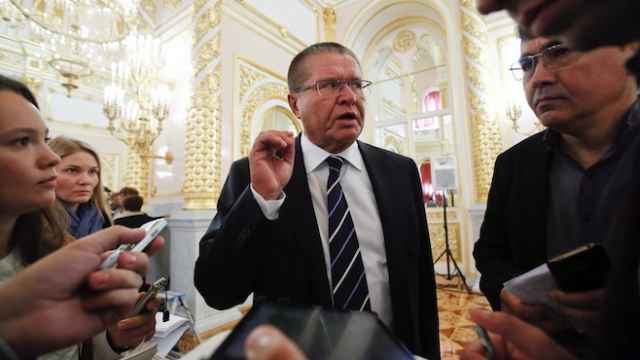BRUSSELS — The European Union is likely to keep sanctions on Russia in place for now when ambassadors meet next week to assess progress in implementing Ukraine's peace process, diplomats said.
When the EU adopted its latest sanctions on Russia over its involvement in the Ukraine conflict earlier this month, EU ambassadors agreed they would review the implementation of the Ukraine peace plan by the end of September.
European Council President Herman Van Rompuy held out the possibility that, if the situation on the ground warranted it, EU sanctions could be amended, suspended, even fully repealed.
A ceasefire between pro-Russian separatists and Ukrainian forces in eastern Ukraine, which took effect on Sept. 5 and has been regularly violated, "has finally begun working," Ukrainian President Petro Poroshenko said on Thursday.
"For me, the analysis is that the conditions are so far not ripe to reverse course," one EU diplomat said, ahead of a meeting of EU ambassadors on Tuesday to discuss the implementation of the peace plan.
The ambassadors would probably recognize some positive movement in Ukraine and leave the door open to scaling back sanctions if the peace process made sufficient progress, said the diplomat, speaking on condition of anonymity.
Unanimity would be required to remove any of the sanctions and that looked unlikely to be achieved, another diplomat said.
"There is no consensus emerging among EU ambassadors to repeal the sanctions. It is simply too early to judge developments on the ground," the senior EU diplomat, from a northern European country, said.
A third senior diplomat, who favors less harsh measures on Moscow, agreed there was no consensus for easing them just yet.
Keeping Up Pressure
Another diplomat from an EU country that strongly supports sanctions said there was no evidence of Russia backing away from its support for separatists in eastern Ukraine.
"Sanctions are having an impact and it is also important that the EU keeps its united stance and keeps up the pressure on Moscow," he said.
The EU has been sharply split over sanctions imposed against Russia because of its annexation of Ukraine's Crimea region and its support for the separatists in eastern Ukraine.
As Brussels has escalated pressure, moving from asset freezes and travel bans on individuals to sanctions on Russia's finance, energy and defense industries, it has become more and more difficult to get agreement among the EU's 28 members.
Some EU politicians, such as Slovak Prime Minister Robert Fico and Hungarian Prime Minister Viktor Orban, have been openly scornful of sanctions and these countries are likely to push for an easing of sanctions next week.
One EU diplomat said that, for now, however, there was no impetus to ratchet up sanctions on Russia any further.
Many governments are wary of antagonizing Russia, the bloc's leading energy supplier, and fear more Russian trade retaliation. Russia has already responded to EU and U.S. sanctions by banning imports of most food from the West.
Even if no action is taken next week, a separate review of the sanctions is not far away. When EU governments first adopted economic sanctions against Russia, in July, they agreed to review them after three months, on Oct. 31, to determine their impact on Moscow's behavior.
A Message from The Moscow Times:
Dear readers,
We are facing unprecedented challenges. Russia's Prosecutor General's Office has designated The Moscow Times as an "undesirable" organization, criminalizing our work and putting our staff at risk of prosecution. This follows our earlier unjust labeling as a "foreign agent."
These actions are direct attempts to silence independent journalism in Russia. The authorities claim our work "discredits the decisions of the Russian leadership." We see things differently: we strive to provide accurate, unbiased reporting on Russia.
We, the journalists of The Moscow Times, refuse to be silenced. But to continue our work, we need your help.
Your support, no matter how small, makes a world of difference. If you can, please support us monthly starting from just $2. It's quick to set up, and every contribution makes a significant impact.
By supporting The Moscow Times, you're defending open, independent journalism in the face of repression. Thank you for standing with us.
Remind me later.





